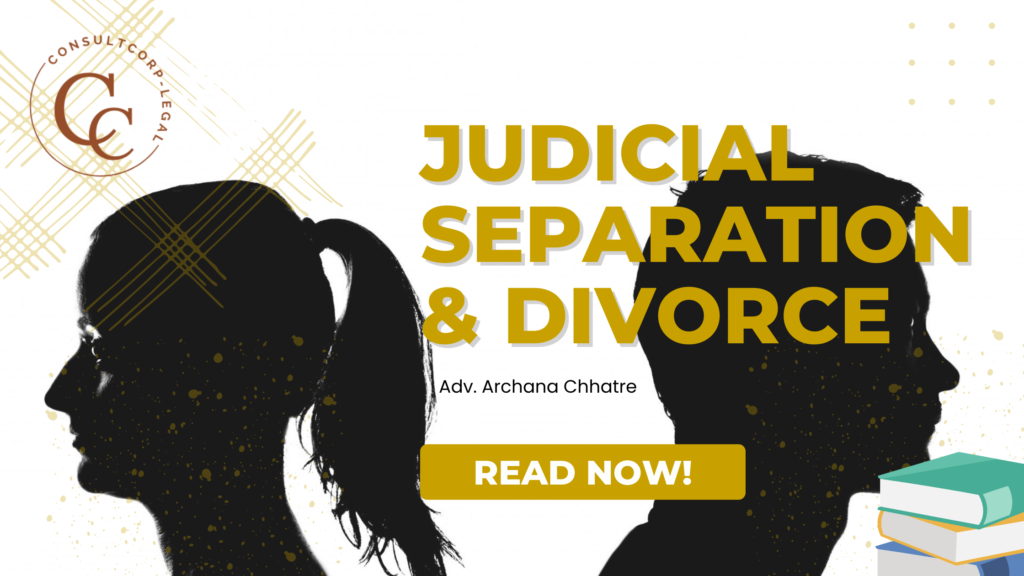By Adv. Archana Chhatre
When Husband and Wife are unable to cope up with each other and all the possible efforts of maintaining peaceful, harmonious relation fail or behavior of one becomes totally intolerable for other or any other cause makes any one of them to think that there is no point in continuing this relation then aggrieved person may seek relief under law. Here we are going to see the provisions under Hindu Marriage Act 1955.
Section13 of Hindu Marriage Act 1955 states that if either of the spouses is guilty of namely Adultery (voluntary sexual intercourse with any person other than spouse), Cruel treatment (physically or mentally), Desertion (for not less than 2 yrs.), Conversion (to any religion other than Hindu), Unsound mind or mental disorder (continuous or intermittent), Venereal disease( in communicable form), Renouncing the world ( by entering any religious practices), Not heard of being alive (for 7yrs or more) then the aggrieved one has two alternatives: judicial Separation and Divorce.
The terms Judicial Separation and Divorce are commonly misunderstood to be the same. However legal interpretations of the terms are different. Both the terms have been described in Hindu Marriage Act 1955. Section 10 of the Act deals with Judicial Separation whereas Section 13 deals with Divorce. Though the grounds for both are the same under law (under Section 13) the effects differ.
Judicial Separation allows spouses to stay separately but retains their marital status as husband and wife. So though they are staying separately still they can avail benefits of being each other’s spouse under Financial investments or medical policies etc., whereas Divorce puts an end their relation. After Divorce they are not at all related to each-other. Spouses separated judicially cannot marry any other person as their marriage is still not over, but spouses once divorced as their marital status changes can get married to anyone. Cohabitation between judicially separated partners neutralizes their time of separation meaning their Judicial Separation comes to an end whereas cohabitation between divorced partners doesn’t have any effect on their legal status. Judicial Separation gives chance to both spouses to reconsider their decision. If they want, they can continue their marriage and if they are convinced about their earlier decision they can go for Divorce. However once Divorce is granted it cannot be revoked even if the spouses change their mind. Spouses can go mutually for Divorce but not for Judicial Separation as per High Court Judgement in Prashant Singh V/s Tanushree. As per Section 14 of Hindu Marriage Act no divorce petition can be filed within 1 year of marriage whereas there is no such prohibition for filing petition for Judicial Separation.
Sometimes daily fights which are caused due to stress of life may tempt spouses to end up their relation and get free forever. But what they need is time and mental peace to reconsider their relation. Also, if they have any child then situation may be more delicate. In such situation Judicial Separation is always a better alternative. If after some time the issues are resolved and spouses want, they can choose to continue their marriage and if not they can go for divorce.
For help to go through your tough phase of Judicial Separation Or Divorce, Contact us on info@consultcorplegal.com

